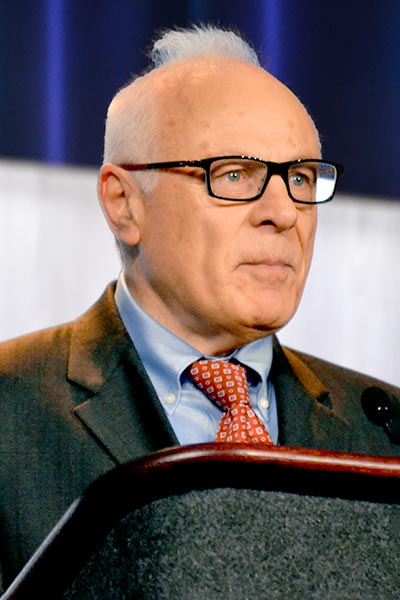The past year has brought substantive scientific breakthroughs in rheumatology. Two experts in the field highlighted some of the most important recent findings in basic and clinical investigation and the clinical practice of rheumatology in Saturday’s Year in Review.

The session is available for on-demand viewing for registered ACR Convergence participants through October 31, 2023, on the virtual meeting website.
Carol Langford, MD, MHS, Director at Cleveland Clinic’s Center for Vasculitis Care and Research, looked at high-impact publications since November 2021 and focused on noteworthy concepts that had a direct impact on practice, explored an innovative approach, or helped weigh risks and benefits. Some, she said, did all three.
The randomized, double-blind, placebo-controlled GLORIA trial demonstrated that the use of prednisolone at a dose of 5 mg a day for two years compared to placebo resulted in some decrease in disease activity and joint damage. However, there was a 24 percent increase in adverse events.
She also detailed a U.S. Food and Drug Administration (FDA)-mandated study of the Janus kinase (JAK) inhibitor tofacitinib. The study had co-primary endpoints: major adverse cardiovascular events or cancers, both of which had higher incidence rates with tofacitinib. Based on this, the FDA revised its indication in rheumatoid arthritis (RA) and added a warning on tofacitinib.
She also highlighted studies into drug effects on gout and dermatomyositis, as well as anti-CD19 chimeric antigen receptor (CAR) T cell therapy for refractory systemic lupus erythematosus (SLE). She concluded with a look at results of a study into COVID-19 and its effect on patients with rheumatic diseases.
“It has become clear during the course of the COVID pandemic, and particularly over the past year, that the rheumatology practitioner has played a central role in advocating for immunocompromised rheumatic disease patients during the COVID-19 era,” she said.
In one study, Israeli patients who had severe immunosuppression were invited to receive tixagevimab/cilgavimab (Tix-Cil) for COVID-19 prevention in February 2022. Of those who chose to receive the monoclonal antibody combination, 3.5 percent developed COVID-19, compared to 7.2 percent among those who chose not to receive it.
“The Tix-Cil-treated group was found to be half as likely to become infected and 92 percent less likely to be hospitalized or die, so while Tix-Cil does not prevent all COVID infections, it appears to lessen the frequency and severity,” Dr. Langford said.
The FDA granted emergency use authorization of Tix-Cil at 300 mg of each monoclonal antibody given by intramuscular injection at six-month intervals.

John Varga, MD, Professor of Medicine at the University of Michigan, highlighted key publications in basic science in the past year, including research on how genetic risk variants promote disease within SLE. One study investigated a TLR7 variant, showing that in its presence, immune cells became more sensitive and mounted a greater inflammatory response. Researchers created a CRISPR TLR7 mutation in mice that demonstrated spontaneous autoimmunity.
Another study explored why lupus patients who had elevated levels of CD38 faced higher risk of lethal infections, and whether CD38 could be targeted for therapy.
A study into skin lesions in lupus patients involved taking biopsies and analyzing gene expression patterns. The results showed that even “normal” skin in these patients was already primed for immune response.
Dr. Varga also highlighted research into vaccination-based immunotherapy to treat fibrosis, showing that fibrosis is reversible, but long-term safety and efficacy are not known.
He also included a study that looked at joint memory and asked whether joints, once affected, remain highly primed to have recurrent flares of RA.
“Even during remission, tissue-resident memory T cells persist and are ready to cause mischief when a recurrent antigen presentation occurs,” he said, adding that targeting those T cells may present an opportunity for treatment.
Register Today for ACR Convergence 2025

If you haven’t registered for ACR Convergence 2025, register today to participate in this year’s premier rheumatology experience, October 24–29 in Chicago. All registered participants receive on-demand access to scientific sessions after the meeting through October 31, 2026.
